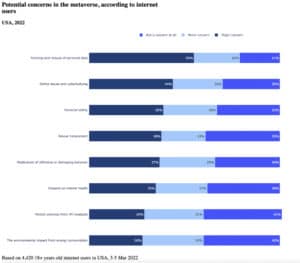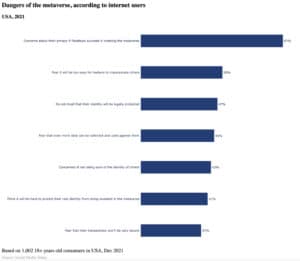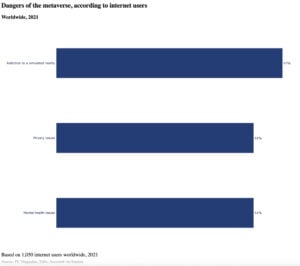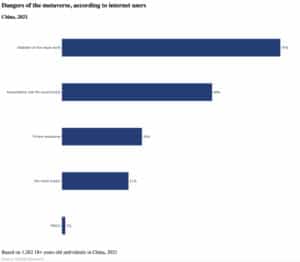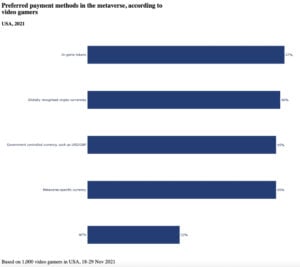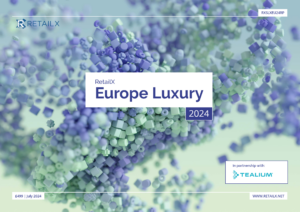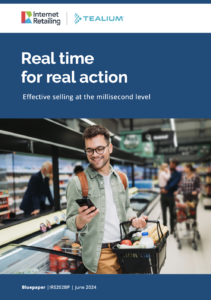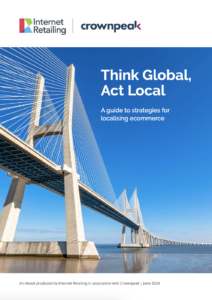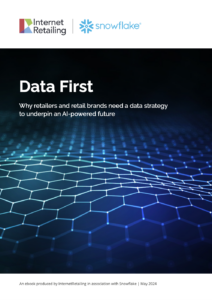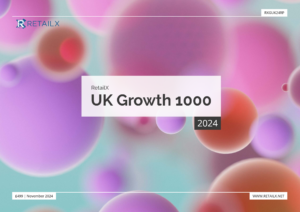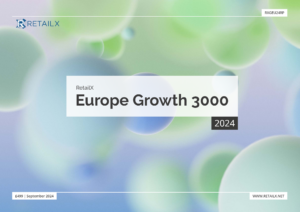Why the metaverse matters to retailers
If just 10% of today’s internet users use the metaverse, that puts 480mn users into the virtual world. If 25% do that is 1.2bn users. And they will all want to interact and buy things.
For this reason, the metaverse is tipped to be worth around $5tn by 2030. No wonder that VCs are piling in to invest in metaverse tech and ventures, pledging $120bn in 2022, up dramatically from the $16bn seen in 2021.
In this report, we look at what the metaverse is, how it works, who is building it, and how consumers, retailers and brands are using it today. We also address the concerns many have with privacy and addiction. We also consider how retailers may use the metaverse in the years ahead.
Sharelines
69% of consumers have heard of the metaverse and, of these, 38% are very or somewhat familiar with it
13% of UK shoppers and 19% of those in the US believe that brands need to be building experiences in the metaverse today
16% of businesses say they are already selling both real and virtual goods in the metaverse
TL;DR
- 32% of gamers, 54% of games developers and 38% of businesses see the metaverse as the next iteration of the internet, blending physical and virtual worlds and experiences
- If just 10% of the 60% of the population that currently uses the internet opts to use the metaverse, that delivers some 480mn pairs of eyeballs to the metaverse. If this hits 25%, then that equates to 1.2bn users
- Estimates suggest that the metaverse could be worth as much as $5tn by 2030. VC investment into the technology and into companies looking to use the metaverse has gone from $13bn in 2021 to more than $120bn in 2022
- 66% of 1,000 US business leaders said that their companies are ‘actively engaged’ in the metaverse in some form or other – 80% of these leaders see the metaverse as being an active part of their businesses within three years
- Fashion leads the way, with 34% of retailers having some sort of participation in the metaverse already. This is double the next segment, consumer electronics, where the equivalent figure is 17%
- 25% of consumers and businesses believe that they may spend at least an hour a day in the metaverse – gaming, shopping, socialising, seeking entertainment or working
- The ability to experience things that can’t be experienced in the real world motivates 41% of consumers considering joining the metaverse, while 28% want to escape their physical surroundings. 40% want to use it to communicate with others more effectively
- 70% of Chinese consumers say they fear becoming addicted to the metaverse in the years ahead, while 55% see it as a risk to privacy and a potential extension to online bullying and harassment. Some fear it will lead either to anarchy or, conversely, totalitarian control by the state


